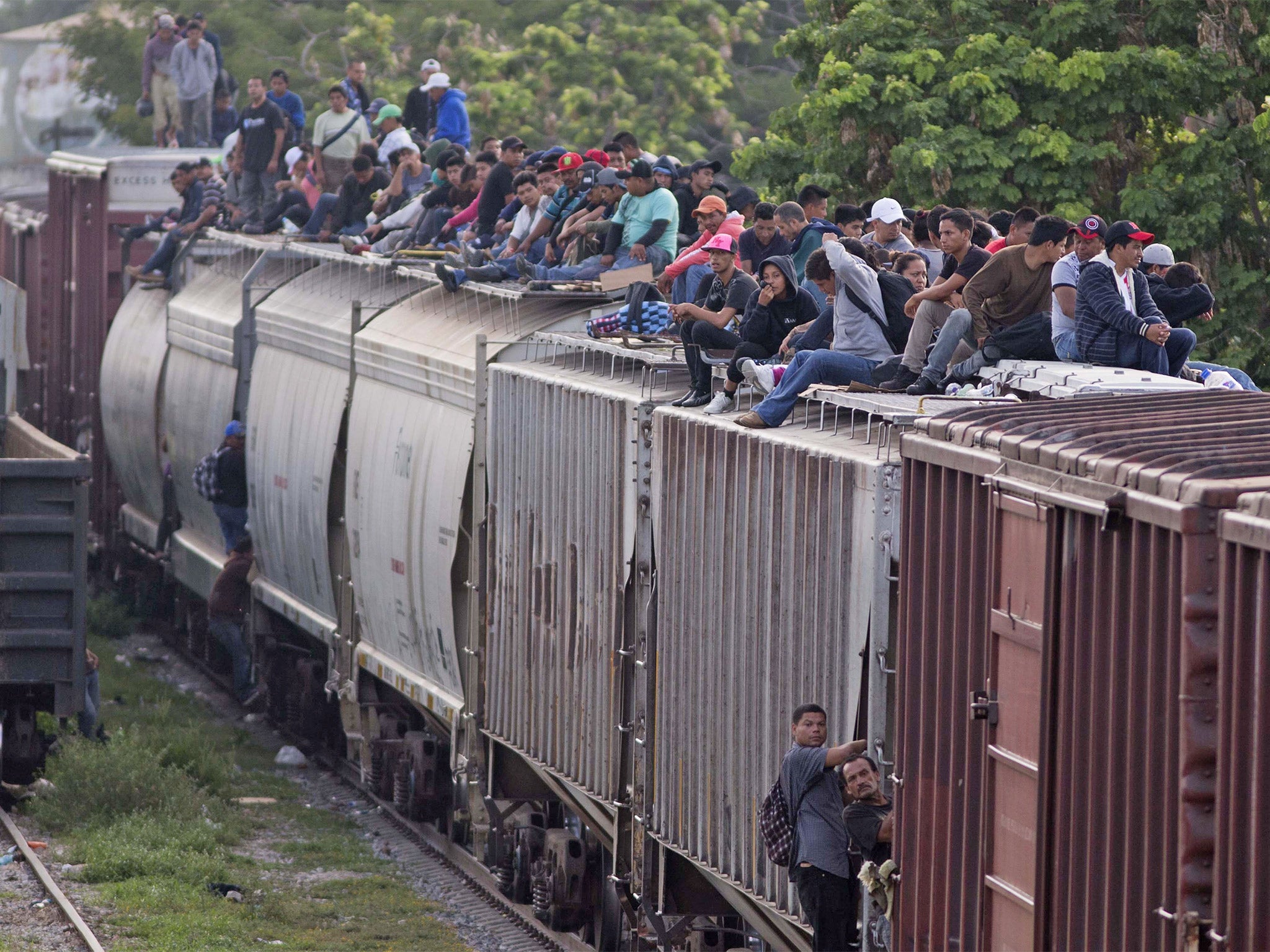Hit song 'La Bestia' about Mexican death train released by US border agency to deter prospective migrants from making the trip north
However the composer claims the song’s warnings about the dangers of migration would be less effective if its listeners were aware of its links to the US government

Your support helps us to tell the story
From reproductive rights to climate change to Big Tech, The Independent is on the ground when the story is developing. Whether it's investigating the financials of Elon Musk's pro-Trump PAC or producing our latest documentary, 'The A Word', which shines a light on the American women fighting for reproductive rights, we know how important it is to parse out the facts from the messaging.
At such a critical moment in US history, we need reporters on the ground. Your donation allows us to keep sending journalists to speak to both sides of the story.
The Independent is trusted by Americans across the entire political spectrum. And unlike many other quality news outlets, we choose not to lock Americans out of our reporting and analysis with paywalls. We believe quality journalism should be available to everyone, paid for by those who can afford it.
Your support makes all the difference.It is one of the most popular songs on Central American radio, frequently requested from stations across Honduras, Guatemala and El Salvador. But what most of its listeners don’t know is that “La Bestia” (The Beast) – a ballad about the treacherous train journey across Mexico towards the US border – was commissioned by the US Customs and Border Protection (CBP) agency to deter prospective migrants from making the trip.
Since October last year, more than 52,000 children, many unaccompanied by adults, have arrived in the US illegally after crossing its border with Mexico. Most are refugees fleeing endemic violence in Central America.
President Barack Obama has asked Congress for $3.7bn (£2.2bn) in emergency funding to address the humanitarian crisis, including $5m to be spent on a media campaign advising people not to come to the US.
The CBP has already launched a $1m advertising drive to put off Central American parents who plan to send their children north. According to a report by The Daily Beast, a news website, the “Dangers Awareness Campaign” unveiled this month was conceived by Elevation, an advertising agency based in Washington DC, whose Mexican-born creative director, Rodolfo Hernandez, wrote the Spanish-language lyrics to “La Bestia”.
Pablo Izquierdo, the vice-president of Elevation, told The Independent that the song’s warnings about the dangers of migration would be less effective if its listeners were aware of its links to the US government. “It’s not that we’re trying to deceive people,” he said. “The message itself is the goal, and we don’t want to let the messenger interfere with the message.”
The song’s lyrics refer to a train known as “the Beast”, a freight train with a deadly reputation, which is used by migrants to travel the length of Mexico to the US border. Many have died dropping from the train during the journey, or lost limbs after falling beneath its wheels. Those who manage to stay on board run the risk of encountering criminal gangs, who rob vulnerable migrants or even kidnap them for ransom. “La Bestia” includes a reference to Mara Salvatrucha, a notorious Central American gang whose members prowl the train.
“Migrants from everywhere, entrenched along the rail ties/Far away from where they come, further away from where they go,” say the lyrics. “They call her the Beast from the South, this wretched train of death/With the devil in the boiler, whistles, roars, twists and turns.”
“It is important to us that the message be delivered,” Laurel Smith, the director of communications and outreach for CBP, told The Daily Beast. “We want to make sure the audience is listening.”
In 2004, as part of a similar media campaign, the CBP distributed a CD of songs to Mexican radio stations, which it later credited with contributing to a decrease in the number of migrant deaths.
Elevation produced six songs for the new campaign, including one about the dangers of crossing the Sonoran Desert into the US. “La Bestia” was the first to be tailored specifically to audiences in Honduras, Guatemala and El Salvador.
“The other songs are in the Mexican corrido folk style,” Mr Izquierdo explained, “but ‘La Bestia’ is more of a modern pop song, loosely based on the Caribbean cumbia style.”
Join our commenting forum
Join thought-provoking conversations, follow other Independent readers and see their replies
Comments